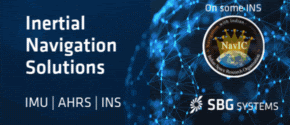| Galileo Update, News Archives | |

NEWSBRIEFS – Galileo update
|
||||
ESA Chief says Galileo test problems are being fixedEuropean space chief Jean-Jacques Dordain said that problems encountered by a test satellite for the Galileo sat-nav system were being addressed, although he gave no date for its launch. Galileo plans to have around 30 satellites and be running commercially from 2010. The European Space Agency (ESA) has contracts to launch and test two experimental satellites to confifi rm Galileo’s technology, and also to provide the first four of the 30 satellites. The first satellite, GIOVE-A, successfully launched in December 2005, but its companion, GIOVE-B — initially scheduled to be hoisted aloft in early 2006 — has twice been postponed. Dordain, who is ESA’s director general, said the delay was “due to a technical problem with a component which failed during tests, but we also encountered organisational problems.”“As soon as the problems emerged, we set up three investigative groups, working in parallel. When they reported back, we took technical and organisational action that should enable us to launch GIOVEB this year.” http://www.spacedaily.com Galileo project ‘hindering’ phone sat-nav rolloutGalileo is becoming a barrier to the integration of satellite navigation into European handsets, a mobile operator claimed. According to Ian Curran, head of telematics and machine-to-machine communications at O2, operators and manufacturers remain uncertain over the deployment schedule for Galileo and the likely quality of its signal. Although the mobile industry wants to put some form of GNSS functionality into phones, some companies within it are hesitant about which system to use. The only GNSS currently in action is GPS. However, Galileo — which should be fully operational by the end of 2008— will supposedly provide greater accuracy, leaving some in the industry wondering whether they should invest in compatibility with GPS, Galileo or both (a path that appears to have been taken by the UK-based chipset manufacturer CSR). New web site on GIOVE missionOne year ago, GIOVE-A began transmitting Galileo navigation signals. This satellite is the fifi rst flight element in ESA’s in-orbit validation programme for Galileo. This signal transmission has secured the use of the frequencies allocated to the Galileo system by the International Telecommunication Unit (ITU), achieving the primary mission for which the satellite was constructed. The receivers that have been developed for Galileo were able to receive the first signals at ESA sites at Redu (Belgium) and Noordwijk (Netherlands), at the Chilbolton Observatory (UK) and at the Guildford (UK) mission control centre of Surrey Satellite Technology Ltd, the prime contractor for GIOVE-A. Information on the GIOVE mission is now accessible at www.giove.esa.int. This new web site provides general information to the public and measurement data and core products to registered external users who are collaborating with ESA on the mission experiments. |
||||












 (No Ratings Yet)
(No Ratings Yet)





